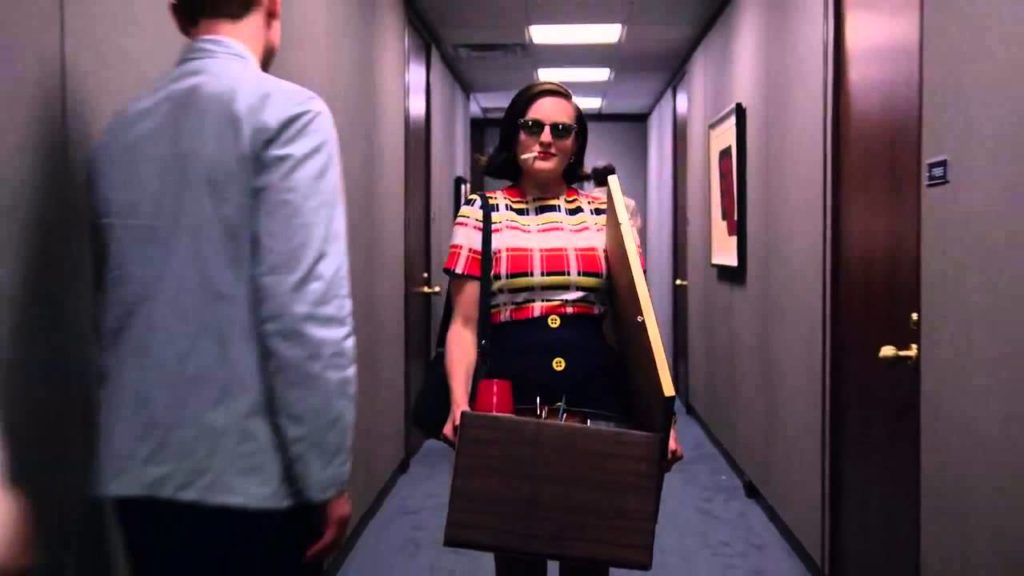
Dear Baby Creatives,
Last week, we looked at the general concept of dues-paying for ad industry newbies and why, in the end, you should take a deep breath and suck it up as the reasonable cost of getting your career off the ground. It’s just how things work. It’ll pass. Breathe. Inhale for a count of four, exhale for a count of eight, and get on with your mind-numbing gruntwork.
I also mentioned, however, that not everything falls into the category of “dues.” Unfortunately, office noobs can sometimes be subjected to serious violations under the guise of “dues paying,” when really, what they’re experiencing is hazing, harassment, or abuse. So here are a few things that aren’t dues, and that you shouldn’t have to, and don’t have to, put up with.
Illegal labor practices
I am not a lawyer, so I’m not going to go deep into this, but know that if you suspect your employment situation is legally noncompliant, it’s worth looking into. You may find out that fetching coffee really is within the bounds of labor law, or you may find out that your uncompensated internship isn’t. Give it a Google, at least. At home. On your own time.
Physical or emotional abuse
Maybe it should be obvious, but to some people, it isn’t, so: No one gets to put their hands on you. And no one gets to call you names, impugn your general worthiness as a human, or vent their frustration about their impending divorce on you. If you screw up, you should be prepared to take it with grace, because you screwed up. But we’re talking about outside voices used inside, maybe an f-bomb or two, max, in addition to (of course) fixing your screwup — not being harangued at length and/or handled bodily.
Being asked to do illegal or unethical things
You might be asked to do boring, tedious, or frustrating things because you’re the new kid. But if you’re being asked to do illegal or unethical things just because you’re inexperienced and might not actually realize they’re illegal or unethical, that’s unacceptable. Any time words like “probably won’t get caught” start getting thrown around, you know you’re in a bad place.
I have, on a couple of occasions, found myself asked to do something I found to be wrong — “borrow” an idea from someone else (beyond the usual “steal like an artist” standards), use licensed assets with the assumption that no one’s likely to find out, or make claims in copy that couldn’t be backed up. A couple of those times, it got to the point where I straight-up said, “I’m not going to do that, but here’s what we can do instead,” and my position was respected. It’s hard to pull that off as the new kid, but it’s worth the attempt.
It’s easy to say “if they fire you for refusing, you’re better off not working for them anyway” — personal ethics don’t pay the rent. But this is a case where it’s legit. An agency that will ask you to break the law and then fire you for not doing so is accustomed to working that way and will end up sued sooner or later. You don’t want your reputation to be a part of that.
Sexual harassment
Things can get spicy in an ad agency — you’re working in a creative field with creative (and sometimes, let’s admit, self-consciously zany) people, and it’s to be expected that when people open up their brains to the creative process, some less-than-appropriate things can fall out. But that’s a tendency, not a rule. And more than that, it’s not an excuse to act like one’s colleagues aren’t human beings worthy of dignity and respect just because one saw Jon Hamm pretend to do it for seven seasons on AMC.
There’s less than appropriate, and there’s hostile work environment. If you feel like any kind of sexually charged ideation is starting to get gratuitous, and especially if things are being aimed directly at you, it’s okay to speak up. And if you don’t feel comfortable speaking up — which is reasonable — talk to your creative director, or someone else in the agency you feel comfortable around.
Racism, homophobia, and any other kind of bigotry
Similarly, you may encounter people who use the rather liberal creative environment as an excuse to say all the stuff they can’t get away with on Twitter (or, on occasion, who sincerely do lack the self-awareness to know better). if other offensive content arises, it’s okay to speak up. I have found myself in a concepting meeting saying, “I’m really not comfortable with that word,” and it got reeeeal quiet for a minute, and then everyone acknowledged it and moved on — and afterward, a colleague quietly thanked me for speaking up when she’d been uncomfortable doing so. (And Then The Whole Restaurant Started Clapping. No, for serious, this really happened.) Or again, if you don’t want to say something during the moment, talk to your CD.
Pressure to use substances you don’t like to use
Much of the advertising industry’s activity is fueled by vodka. (The black-rimmed-glasses-and-Converse crowd also appears drawn to Negronis at the moment.) But that doesn’t mean you’re obliged to fuel yourself thusly. It’s good to socialize and bond with your colleagues, and that might mean going to a bar, but it doesn’t mean you’re obliged to join in a round of shots or, I don’t know, a rail of coke, or whatever the kids are doing these days. And you shouldn’t have to be ashamed of it — “Thanks, but I don’t drink” is fine and should be enough to get people off your back. Some may advise you to just get a club soda with lime and pretend there’s booze in it, but I say screw that. Your colleagues should respect your position without you having to deploy decoy cocktails like your choices in that area are something to be ashamed of.
(I do recognize that the tendency for ad professionals to get their creative juices flowing with the help of Creative Juice can make things hard for people with, for instance, substance problems, who may have trouble just being around such substances. I sincerely hate that for you. You should talk to your — okay, you get it.)
Threats to your personal safety
Sometimes, we work long hours and late nights. Sometimes, we go to shoots in parts of town that aren’t the greatest. Strength in numbers and common sense are key. Not key? Working you to the point of physical exhaustion. Leaving you by yourself in a strange place to make your own way home, leaving you behind to lock up after a late-night concepting session, or anything else that makes you vulnerable to any kind of damage — that’s not something you have to put up with.
This ain’t Mad Men, is my point.
The advertising industry is subject to a lot of stereotypes, many of which are true, many of which aren’t. Many of them used to be true, but the industry really is evolving to keep up with the times. If your agency is subjecting you to harmful or antiquated treatment and saying it’s just how the industry works, they’re wrong. And/or lying. I’ve worked with plenty of agencies that are great working environments for their employees (and some that kind of suck but at least aren’t abusive). Be prepared to work hard, be prepared to do things that aren’t glitteringly inspiring, but don’t be prepared to suck up maltreatment and pretend you’re just building character. Character can be built without physical or emotional scars, and you deserve that.
Welcome to advertising, noob.
XOXO,
Caperton
Former baby copywriter, now wildly successful in the industry


